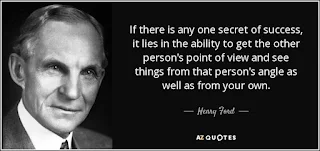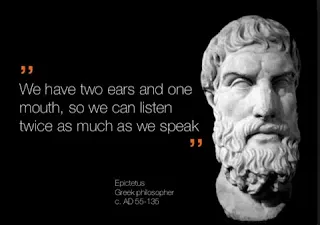How to Win Friends and Influence People
Introduction
Though technology has advanced dramatically, humans remain fundamentally social creatures driven by both self-interest and emotions. This makes strong interpersonal skills highly valuable.
- Many of the principles Dale Carnegie outlined in his seminal 1936 work, How to Win Friends and Influence People, hold true today.
Avoid Criticise, Condemn or Complain
When interacting with people, it is important to remember we are dealing with emotional beings, not solely creatures of logic. They often hold biases, influenced by pride and self-importance.
- Criticism, while seemingly direct, is often ineffective and can backfire. It puts people on the defensive, wounding their self-esteem and leading to resentment.
- It is in human nature that we are blaming everybody but themselves.
Anyone can criticize, condemn and complain - and most fools do. Understanding and forgiveness require character and self-control.
- A great man shows his greatness by the way he treats little man.
- We are often more interested in our own lives than in the details of others.
- Instead of criticizing, try to see things from their point of view. Be sympathetic and ask yourself, "Would I act differently if I were in their situation?"
- Positive reinforcement through compliments and kind words is a far more effective motivator than criticism or punishment.
Moreover, focusing on self-improvement is often more productive than attempting to change others.
- After all, as the saying goes, "Do not complain about the snow on your neighbour's roof when your own doorstep is unclean".
The Power of Appreciation: Fuelling Enthusiasm
The key to motivating others lies not in threats or force, but in inspiring them to want to do something.
- People are driven by various desires, such as health, food, sleep, money and the things money can buy, life in the hereafter, sexual gratification, the well-being of our children and a sense of importance.
- This desire manifests in various ways, such as the pursuit of the latest gadgets and fashions, the drive to excel in competition, and the craving for public approval.
- It also explains why some people donate huge sums to charity or feel the need for extravagant displays of wealth (e.g. a larger house than they necessarily need).
The key to unlocking enthusiasm lies in appreciation. Everyone craves recognition for their efforts.
- Instead of criticizing and finding fault, offer sincere compliments that highlight genuine strengths.
- Spend time to consider the other person's good points and avoid shallow flattery; focus on honest and heartfelt recognition.
Speak to Their Eager Wants
Every action we take stems from a desire, a need or a want.
- This principle holds true when influencing others as well.
- The most effective way to persuade someone is to connect with their desire and show them how to achieve them.
- For instance, instead of lecturing your child about the dangers of smoking, highlight how it could hinder their performance in sports or activities they care about.
It is crucial to shifting your focus from your own needs to theirs.
- Before speaking, take a moment to consider, "What does this person want?"
- Frame your message around their desires and demonstrate how fulfilling those desires aligns with your goals. This creates a win-win scenario.
- Also, arguments rarely lead to productive outcomes.
Remember, customers like to feel that they are buying, not being sold.
- When possible, present options and allow the customer to feel like they are personalizing the solution (i.e. let the other person feel that the idea is his or hers).
The Magnetism of Genuine Interest in Other People
While "I" may be a common word in conversation, focusing on "you" is key to build strong relationships.
- People you are talking to are inherently more interested in themselves, their wants and problems, than in yours.
People are drawn to those who are genuinely interested in them.
- Show your enthusiasm! Greet others with warmth and animation, even over the phone.
- Make an effort to remember people's names and details about their lives. This shows you care and pay attention.
- Be an attentive listener by giving people your exclusive attention when they are speaking.
- Many people have been so much concerned with what they are going to say next that they do not keep their ears open.
- Even when people are in trouble, they often simply want a friendly, sympathetic listener to whom they can unburden themselves, not someone to give advice.
- To be interesting, ask questions that other persons will enjoy answering (e.g. about themselves and their accomplishments).
- The royal road to someone's heart is to talk about what they treasure most.
- Go out of your way to do things for others - acts that demonstrate your time, energy, selflessness and thoughtfulness.
The Magic of A Smile
A smile is a powerful tool that costs nothing but creates much.
- It enriches those who receive it, with its warmth and positivity, and does not take anything away from the giver.
- As the saying goes, "The expression one wears on one's face is far more important than the clothes one wears on one's back."
- It projects confidence, approachability, and can even reduce stress.
- When you smile, people smile back, and conversations start to flow naturally.
The Art of Disagreement: Beyond Winning and Losing
The saying goes, "You cannot win an argument. If you lose, you lose. If you win, you lose." This captures the essence of why arguments are often counterproductive.
- Even if you prove someone wrong, you may damage their pride and create resentment.
- Often, an argument ends with each of the contestants more firmly convinced that he is absolutely right.
To get the best of an argument is to avoid it.
- If you are wrong, admit it quickly and emphatically.
- Begin in a friendly way, not with the intention of picking a fight.
- Sometimes, argument arise from a desire of validation. Try acknowledging the other person's perspective and authority. Never say, "You are wrong.".
- Show respect by actively listening to the other person's point of view without interrupting. Let them fully express themselves.
- Demonstrate open-mindedness and your willingness to consider different perspectives with phrases like "I may be wrong. Let's examine the facts together".
- Seek common ground, no matter how small, to bridge the gap and foster a more collaborative discussion. Do not start by highlighting your differences. Instead, emphasize whenever possible that you both share the same ultimate goal. Frame the disagreement as a matter of method, not purpose.
- If someone points out a blind spot in your thinking, be thankful for the chance to correct it.
Remember, when one yells, the other should listen - because when two people yell, there is no communication, just noise and bad vibrations.
The Art of Constructive Feedback: Building Up, Not Breaking Down
When offering constructive feedback, start by acknowledging their efforts with sincere praise or share a relevant experience where you made a similar mistake.
- This creates a more receptive environment, similar to a dentist using lidocaine before a procedure (the patient still gets the drilling, but it is less painful).
- People are more receptive to hearing about areas for improvement when they feel their strengths are acknowledged or that you understand their challenges.
Additionally, consider replacing "but" with "and" when transitioning to the constructive feedback itself.
- This subtle shift in language can make a big difference in how the message is received.
Give suggestions by asking questions (e.g. what do you think of this?), instead of issuing direct orders ("do this or do that", "don't do this or don't do that").
- If possible, call attention to people's mistake indirectly.
- This technique preserves someone's pride and foster a sense of importance, encouraging cooperation, instead of rebellion.
Finally, let us praise even the slightest improvement, especially when it highlights a specific action or behaviour you want to see more of.
- This reinforces positive actions and inspire them to keep on improving.
- Remember, by acknowledging progress and expressing your faith in their abilities, you essentially give them a fine reputation for excellence to live up to, motivating them to reach their full potential.
Summary
Beyond technical expertise, the ability to effectively express ideas, assume leadership and ignite enthusiasm in others is highly sought-after.
- While mastering these interpersonal skills requires dedication, the rewards are immense and transformative.
Much of the content here is summarized from the timeless advice in Dale Carnegie's "How to Win Friends and Influence People".
- To truly see these skills be applied in real-world practice, consider picking up a copy of the book.
- Otherwise, you can start by incorporating tips from this summary into your daily interactions. You will be amazed at the difference it makes!








Comments
Post a Comment